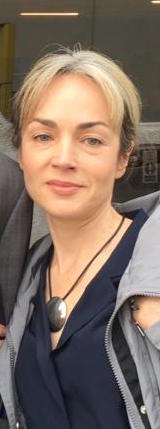Stories accompany us from a very early age. In childhood, when we are confused and powerless in the world of the grown ups, fairytales give us comfort and advice, offering solutions to complex situations. We learn about a hero, struggling in impossible circumstances, and imagine ourselves in his or her place.
Our favourite fairytale, the one that we asked to be read to us over and over again, was the one where the plot reminded us of our own story. Maybe a hero or heroine looked or behaved a bit like us or ended up in similar circumstances. Therefore the solution the story offered appealed to us too.
Eventually we grew up and forgot all about our favourite story, but unconsciously continued to act as if we were still living it.
There are many ways to work with fairytales and different modalities of therapy do it differently. Sometimes, if the process of therapy gets "stuck", I would ask a client about a fairytale he or she preferred as a child.
On one occasion, discovering that my client's favourite tale was "Cinderella", helped us understand why she was often reluctant to act, waiting for a magical rescue and "being good" in the meantime.
Often the way a client tells a story is more important than the story itself. Some characters can be removed or new ones introduced, the plot changed, even the ending might be different from the original. But, if that is how the story was remembered by a child, then that is how this story appealed to him or her at the time.
In some cases, when retelling a story, the client will have an "Aha" moment, a sudden insight into his or her behaviour. One client kept running away from the Big Bad Wolf, disguised as a tyrannical boss or an aggressive neighbour. Another was getting involved with "Frogs" in a hope that one day they would turn into princes.
The "Baddie" of the story or a "Shadow" should not be discounted - be it an evil witch, the wolf or a wicked stepmother. All these characters can possibly represent a rejected part of the client's psyche, unacceptable in his or her childhood. Exploring "the bad" and "the scary" in the fairytale can give us valuable information about ourselves.
So, what if the client can't remember any fairytale or denies ever liking them as a child? In that case, I would ask about my client's favourite movie. Chances are, the movie script would be very similar to the fairy story long forgotten.

